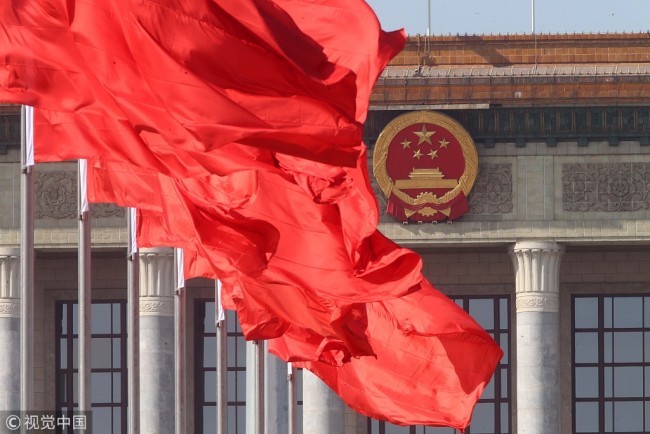Bullish growth prospects forecast for country


Key milestones
On July 1, the CPC marks the 100th anniversary of its foundation.
Martin Jacques, the British academic and author, said it is not just a hugely significant milestone for the Party, but also for China's long history.
"The Party played the fundamental role in rescuing China from the century of humiliation (after its defeat in the First Opium War (1840-42)," he said.
"More than that, it is in the process of transforming China into what will undoubtedly be the most important and influential country in the world. Its achievement lies in the very best traditions of and a great landmark in the history of Chinese civilization."
Kishore Mahbubani, distinguished fellow at the Asia Research Institute at the National University of Singapore and author of Has China Won?, said it was becoming impossible not to appreciate the progress the country has made.
"If anyone had dared to predict in 1921 that by 2021 China would become one of the two most powerful countries in the world-and had also just experienced the best four decades in 4,000 years of history-such a prediction would have been described as foolhardy and impossible," he said.
"Clearly, the Chinese people have made enormous progress under the leadership of the CPC. This major fact cannot be denied by anybody."
Kerry Brown, director of the Lau China Institute at King's College London and author of China's World, said the extent to which the nation and the CPC are intertwined is not yet recognized outside of China.
"The Party is not well understood in the West. This (the 100th anniversary) is an important moment for many in the West to work out what they really think and understand about the history and role of the CPC," he said.
"The CPC lies at the heart of the Chinese nation and its ambitions today. Trying to ignore that is rather like trying to write the history of modern Italy without mentioning Catholicism."
One of the most significant events this year will be Biden moving into the White House to replace Donald Trump. The 78-year-old will become the country's oldest president to be inaugurated.
Roach, author of Unbalanced: The Codependency of America and China, does not expect an immediate change in US-China relations.
"It won't be easy to repair the damage done to the relationship over the past four years," he said.
"The key will be to convert distrust back into trust-something that will require small steps at first. Coming together on climate change after the US rejoins the Paris Agreement and breaking the logjam on WTO reform would be another."
Mahbubani, a former UN diplomat, expects there to be a change of tone and an end to the "nasty speeches" on China given by US Secretary of State Mike Pompeo and others, which many in China have viewed as Sinophobic and racist. He believes the US will sooner or later have to accept that China's rise is now unstoppable.
"Any effort by the US to block the return of China, or the rest of Asia, is therefore bound to fail," he said.
"The wisest thing the US could do today is to press the pause button on the geopolitical contest against China and work together with China to kill COVID-19. This is simple common sense, but sadly, common sense is not common in the US today."
Edward Tse, CEO and founder of Gao Feng Advisory, a management consultancy, hopes the Biden administration will move away from banning Chinese technology companies such as telecommunications giant Huawei and chipmaker SMIC, and also from cutting off the supply of key components, including semiconductors, to Chinese companies.
"Biden may not act straightaway, but I think he will have to eventually, because these sorts of restrictions are actually a lose-lose for both sides," he said.
"US chip companies, in particular, are not benefiting from the ban, and worse, they are losing competitiveness because of a lack of access to the China market."
Tse believes that Biden may come to realize that the only way to deal with China's tech challenge is to make the US more competitive in areas such as cutting-edge telecommunications, where it currently has a weak presence.
"His strategy may therefore be to launch industrial policies to develop tech, as is taking place in China and East Asia generally," he said.
Last month, the Organisation for Economic Cooperation and Development forecast that real GDP growth this year would be 4.2 percent, down from its September prediction of 5 percent. It also expects one-third of this growth to be generated by China, with Europe and North America lagging behind.
One unknown factor is the full extent of economic damage resulting from failed businesses and workers losing their jobs due to lockdowns imposed around the world.




































